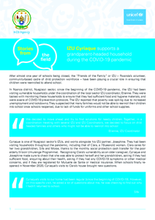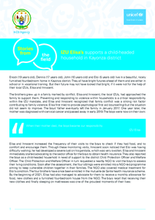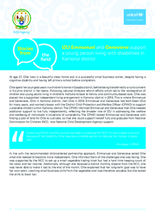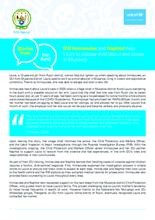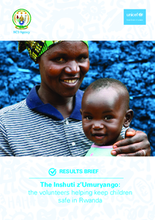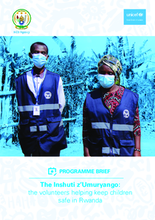This country page features an interactive, icon-based data dashboard providing a national-level overview of the status of children’s care and care reform efforts (a “Country Care Snapshot”), along with a list of resources and organizations in the country.
demographic_data
childrens_living_arrangement
children_living_without_bio
adoption
social_work_force
key_stakeholders
Key Stakeholders
Add New DataOther Relevant Reforms
Add New Datadrivers_of_institutionalisation
Drivers of Institutionaliziation
Add New Datakey_research_and_information
Key Data Sources
Add New DataReport on National Assessment of Centres caring for Children with Disabilities in Rwanda
National Integrated Child Rights Policy
Country Care Review: Rwanda
Prevalence and number of children living in institutional care: global, regional, and country estimates
The Way Forward Project Report
Community-Based Child Protection Mechanisms in Refugee Camps in Rwanda: An Ethnographic Study
Displaying 11 - 20 of 191
In this webinar, a new paper on strategies to prevent family separation is presented. Examples from Rwanda, Kenya, Uganda and Namibia are presented.
The Hope for Homes team in Rwanda helps communities become more inclusive for children with disabilities.
This webinar provides an opportunity to share experiences on the transformation of residential care. The webinar will begin with an introductory presentation by Rebecca Nnep, Senior Technical Advisor, Better Care Network, who will shed light on emerging lessons and ongoing efforts/work done to ensure effective transitioning.
The Commonwealth must work together to end the institutional care of children and reform protection services to ensure: “every child is safe, protected and able to reach their full potential”, the Commonwealth Secretary-General has said.
In this case study IZU Cyriaque supports a grandparent-headed household during the COVID-19 pandemic.
This case study details how IZU Elisa supported a child-headed household in Kayonza district, Rwanda.
This case study details,how IZU Emmanuel and Genevieve supported a young person living with disabilities in Kamonyi district, Rwanda.
This case study details how IZU Immaculee and Naphtal help Laura to escape child labour and abuse in Musanze, Rwanda.
This brief presents the results of several assessments of the ‘Friends of the Family’ or ‘Inshuti z’Umuryango’ (IZU) initiative in Rwanda. IZU is a frontline volunteer cadre introduced in 2016 as part of Rwanda's national child protection system strengthening and care reform efforts.
This brief outlines the background to, rationale for, and objectives of the ‘Inshuti z’Umuryango’ (IZU) or ‘Friends of the Family’ programme in relation to Rwanda’s wider child protection strategy.

